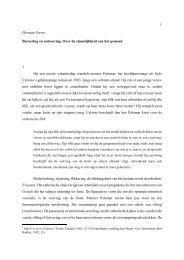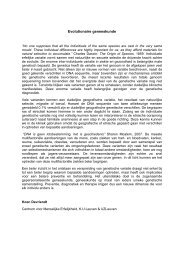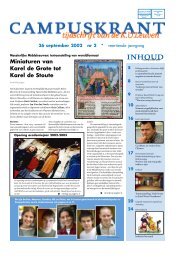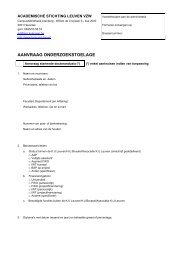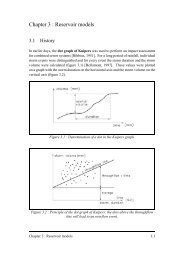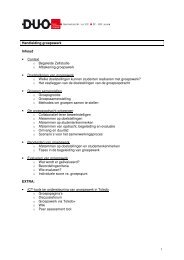EQUALITY GUIdE - KU Leuven
EQUALITY GUIdE - KU Leuven
EQUALITY GUIdE - KU Leuven
You also want an ePaper? Increase the reach of your titles
YUMPU automatically turns print PDFs into web optimized ePapers that Google loves.
Chapter 4 ! Scientific communication 193<br />
2. Category: generation problem<br />
According to the participants, age has an influence as well. Those who mainly work<br />
in groups with young researchers experience gender as less problematic. Many<br />
young men in groups of Senior Academic Staff “admire women, experience<br />
gender as less problematic” (faculty of communication sciences) “and have no<br />
problem with part-time work”. However, in other faculties and research groups<br />
there really is a generation problem, because “there are still too many old crocodiles”.<br />
3. Category: pregnancy and CV<br />
Thresholds that apply specifically to women are of course getting children and this<br />
“right on moments when career opportunities are appearing”. One of the researchers<br />
said the following: “My CV would have looked very different if I did not have<br />
children (pregnancy of 9 months, and 6 months after birth being not productive at<br />
the same level).” It is “the number of publications which counts” and the experience<br />
which you acquire abroad. On this issue as well, there are notable differences<br />
between disciplines. The pressure to publish internationally is bigger for exact<br />
scientists then for human scientists, although this is changing as well. According to<br />
one of the researchers, “it would be stupid to become pregnant if you aspire to a<br />
mandate function”.<br />
4. Category: job characteristics<br />
Another barrier that women experience and which is not considered a gender<br />
problem, is the fact that an academic job demands much effort of a person.<br />
5. Category: female researcher’s characteristics<br />
Women have management skills. They distinguish themselves by their communicative<br />
qualities and their broad interests. However, these ‘female’ characteristics are<br />
often less appreciated. “Women are more often teachers, are good at reporting<br />
exactly, and they do well in education, but these qualities are underestimated.”<br />
6. Category: social representation<br />
There is also something wrong with society’s conception of the way a woman<br />
should behave. “If a child is ill, the mother is supposed to stay at home”, or “the<br />
traditional family role is emphasized too much” and “if they call from school, it is<br />
always to the mother”. On the work floor, the woman is looked upon as “sweet<br />
and helpful, rather than an expert”. This stereotypical representation is also present<br />
in the minds of students: “young female professors are considered as assistants”.<br />
7. Category: looking at things through the male perspective/standards<br />
Most commissions have male scientists to evaluate proposals, also for projects and<br />
statutes. “These commissions, such as the CAP-Commission, look at things from a<br />
male perspective” and “the statutes are evaluated by a group of traditional men”.<br />
8. Category: private life ! work<br />
For many women it remains a problem to combine family and work. Sometimes, a



